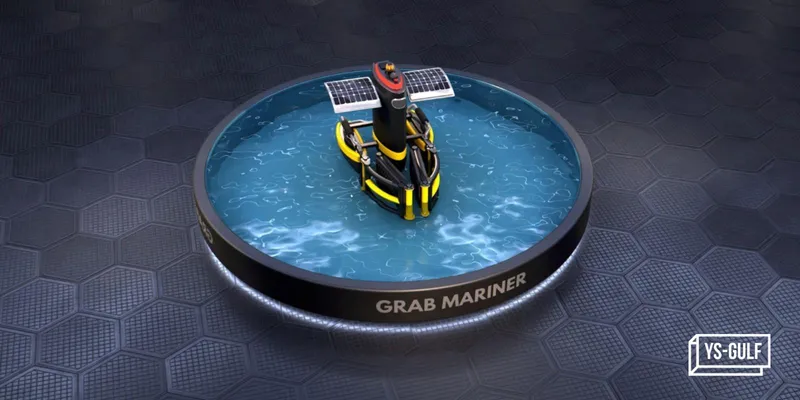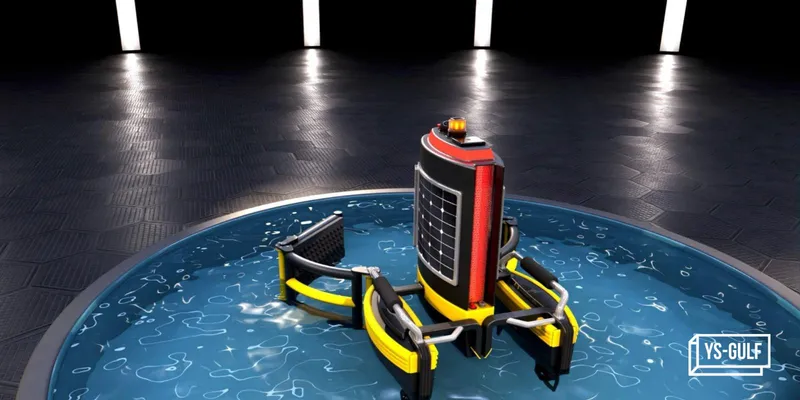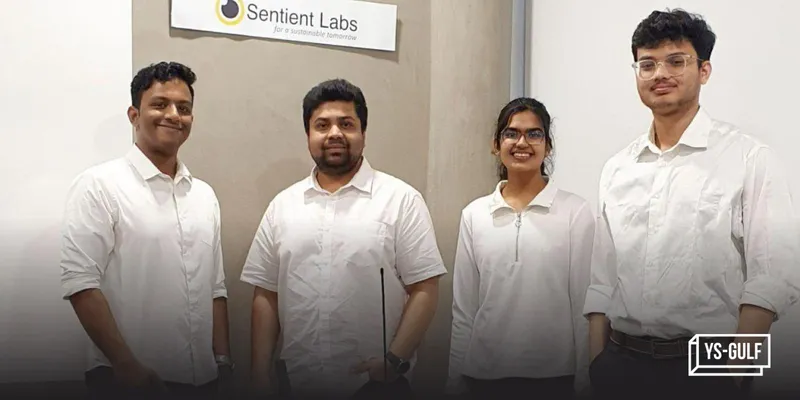From food processing to oceans, Sentient Labs has a robotic solution for all firms
Founded by Anshul Singhal, a BITS Dubai alumnus, Sentient Labs wants to be a research and development innovation studio that will facilitate a sustainable future.
Anshul Singhal’s action plan in life—like most Indian engineering students—was to go to the US to complete his higher education.
Call it luck or destiny—due to a degree misplacement, this US ambition was now off the plans. A conversation with a neighbour brought his attention to the Birla Institute of Technology and Science Pilani (BITS) in Dubai, and he flew to the Middle East instead.
To Anshul, this was one of his best choices.“In retrospect, I feel coming to Dubai, and building a company here is the best thing I have ever done. After I came here, I've done things which I may have been part of but may not have led,” he recalls.
He took up B.E in Mechanical Engineering. Ever curious about how he could grab the next big opportunity, Anshul was now keen on understanding the ecosystem.
Cut to 2019, Anshul started , a research driven multidisciplinary business-to-business (B2B) product development house.
The genesis of Sentient Labs
Building things from scratch came naturally to him. He was raised in a machine manufacturing business family which set the base for his career in building cars.
“I had an understanding of robotics… my background was building race cars and taking them to the US for competitions,” he recalls in a conversation with YourStory Gulf Edition.
It was around this time that Anshul would rethink taking a second shot at getting to the US. He began applying for PhD programmes. With a strong network, now he was confident of clinching a seat.
This is when things would change in his path. He applied for a Dubai Future Accelerator competition with some classmates where they would build the first prototype under Sentient Labs. Anshul and his team got to work and in about two weeks had the product ready.
“My classmates and I built the base prototype of Sentient Labs, and the product happened to get accepted…I signed an MoU with Dubai Municipality,” says Anshul.
The Dubai-based company is also focusing on making it a research and development innovation studio to counteract what Anshul calls data isolation.
As IIT explores new horizons in the UAE, how will it shape education in the region?
“Several companies work in isolation and data is private. But when it comes to solving a problem that is common to all, some of the things can be centralised,” says Anshul.
Building from the ground up
The startup has come a long way from its first prototype. It has now built an unmanned surface vessel or drone—a modular robotic arm called Grab Mariner. This helps users effectively access congested and busy waterways for marine operations.
It replaces the need for having humans onboard, and can be controlled in a number of ways—radio, over the internet or even autonomously.
The Grab Mariner has a payload capacity of 50kg, with a 2.5m/s travel speed, 2m reach and a total 300 degrees span. It is capable of helping operators handle materials without switching equipment completely remotely and flexibly. The device can be mounted on anything from a robotic arm to a marine drone.

Grab Mariner Front View
“To put it in perspective, the products are as big as a car and there are a couple of different models, not just one... there is one for tight corners, one is for open waters… the idea is not to replace the existing fleet because they already have a life span of 25 years,” says Anshul.

Grab Mariner, Rear View
There are a number of advantages with the Grab Mariner. It can complete complex marine operations like waste extraction, water quality monitoring, survey inspection among others. The effectiveness of this device has already caught the eye of potential clients, with the startup onboarding some major oil and gas companies.
Channel partners are also a key source through which Sentient Labs provides services. Besides energy companies, firms from other industries like agriculture, textile, construction, warehousing, healthcare, automotive, and food processing have shown interest in its products.
"We are also partnering with companies that are ready to be on board with us and take care of a distribution worldwide. We will focus on manufacturing the product and enhancing the product solution and they would be the distribution channel partners and service partners," Anshul explains.
Its products are built to compliment the operations of companies. For instance, Grab—the modular arm made by Sentient Labs is capable of handling material remotely. It can also be modified to function like a gripper, holder, collector, fixture, or manipulator depending on use.
Being able to produce at scale wasn’t easy. In 2019, the company focused on a number of things from budgeting to concept building. Just as they reached the brink of manufacturing in 2020, the pandemic hit. Undeterred, they used the time off from manufacturing to focus on building the product.

Sentient Labs Team
Since inception the company has remained bootstrapped. “That’s been the toughest part of the journey,” admits Anshul. However, he sees the flipside of it too. “Having to bootstrap made us so lean that our product reflects in the cost… it has given us a competitive advantage,” he adds. So far, the company consists of five members.
The scope of the robotic market in the Middle East
The robotics market share in the Middle East is expected to grow by $385.74 million from 2020 to 2025. Its overall growth momentum will accelerate at a CAGR of 4.75%, as per a report by Technavio.
A major factor driving the market share growth is the growing need for robotic automation processes and tech-innovation. Among the key consumer countries in the GCC region are Saudi Arabia, UAE, and Qatar. In the growing market, Sentient Labs is competing with the likes of Reliable Robotics, Righthand Robotics, Bright Machines, Gecko Robotics.
William Bao Bean, of SOSV and Orbit Startups, on running a business in the GCC region
What’s next for Sentient Labs?
Anshul says that he does not want Sentient Labs to restrict itself to being a hardware company.
"We do not understand water as much as we understand weather. So, being able to give people access to data points, and helping them understand water would open up opportunities for people who never even thought of them as possible."
Sentient Labs is also looking to work with operations involved in enhancing, maintaining, and preserving the inshore marine ecosystem.
In the works, is the idea to create a hardware ecosystem. "We wouldn't even mind making it open source," Anshul concludes.
(This story was updated to correct the typo in the founder's name.)
Edited by Akanksha Sarma







